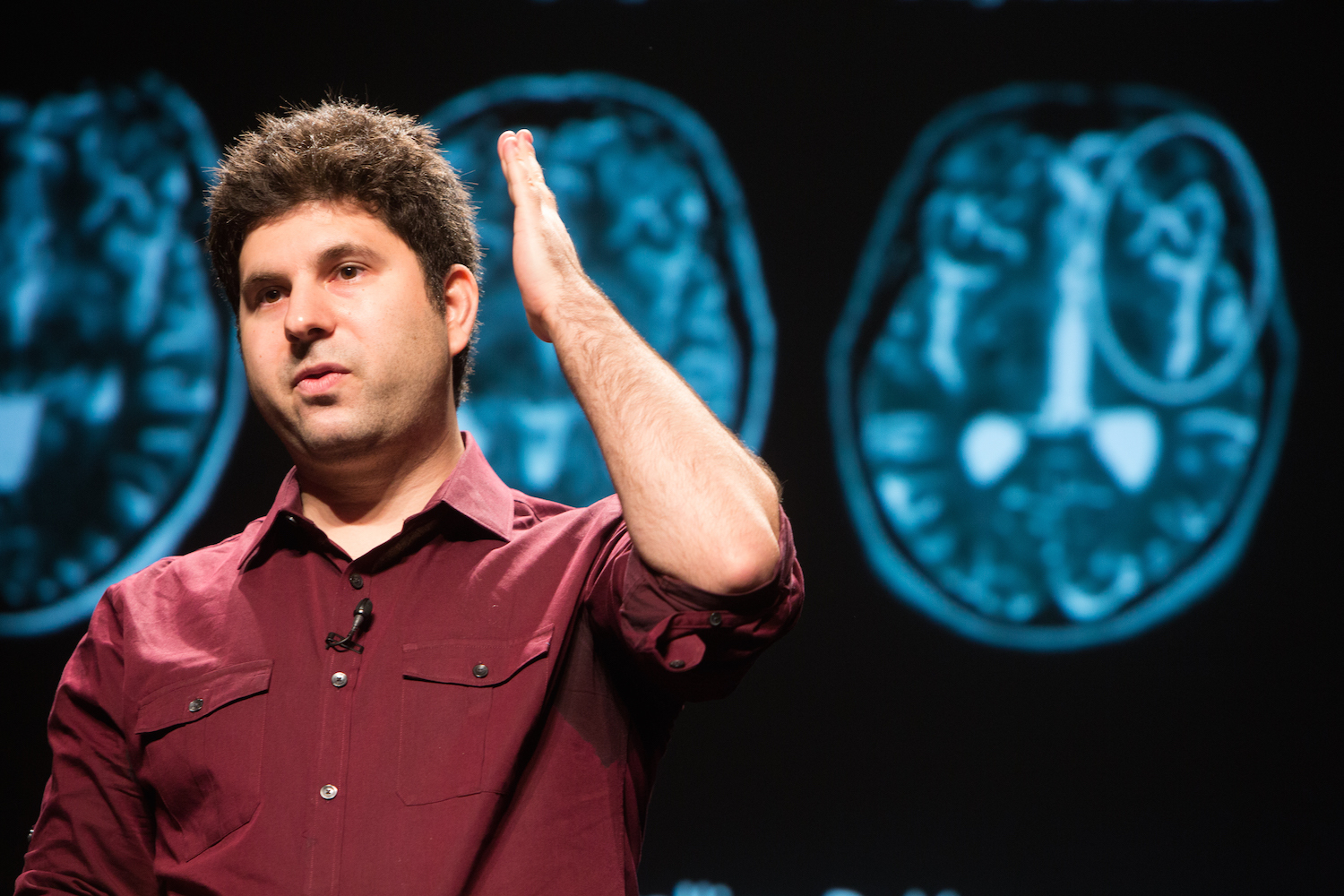The Imagination Man

I came across psychologist Scott Barry Kaufman at an event hosted by the Imagination Institute, where Kaufman is scientific director. Before being locked in a room for two days to discuss the philosophy and psychology of education, all participants had their brains scanned in an MRI machine. Only later did I realize this was typical Kaufman: He’s made a career of fearlessly mixing hard science with culture to create fresh angles on a question IDEO asks on a regular basis: How can we all be more creative?
What does the Imagination Institute do?
We are looking at how we measure imagination, so we can explore ways to increase it. The other part of our activity is studying how imagination plays a role in different fields. For this, we’ve been running events (like the one you attended) in which we gather leaders in domains such as education, futurology, psychology, physics, even comedy.
Why pull from different disciplines?
We want to understand what kind of mind is best suited for creating progress within these specific fields. The hope is that we could get some idea of how to develop that kind of imagination in schools. In the school system at the moment, it’s one-size-fits-all. But individual differences matter!
What would you teach, if you were trying to get more creativity into schools?
The value of personal expression. There are so many forces in our lives that put other people’s words in our head. But creativity research findings show how important it is to be able to insulate yourself, and not be contaminated by other selves. Often the best way we can help others is by developing our highest potentialities to their fullest, and schools are doing a pretty crummy job of that at the moment.
Business leaders want the outputs of creativity, but they often have an unconscious bias against creative behaviors and personalities
How do you continue to be inspired by others without losing yourself?
If you are secure in your sense of self, you can be open to new experiences. It’s the people who have the most fragile egos who are insecure and not creative because they are so scared that they could be wrong.
Tell me more about openness to experience. You mention that a lot.
Openness to experience is a personality trait that can be measured. It has been shown to be the number one predictor of creativity. To be creative, you need to constantly be growing. Openness allows that.
Who’s your psychology hero?
I am hugely interested in Maslow and the humanistic psychologists of the 50s and 60s. When they talked about creativity, they viewed it as the height of being. All these ideas are so relevant today, in our age of constant anxiety, with all the pressure to pay attention to other people’s goals.
What’s your take on creativity?
It’s a very vulnerable way to be—to be curious, and a little crazy.
Embracing the messiness of your mind.
Business leaders ask for creativity, but I think people are actually conflicted about what they really want. They want the outputs of creativity but they often have an unconscious bias against creative behaviors and personalities.
Want to know more about how to flex your creative muscle? Go buy Scott’s book, Wired To Create.
Words and art

Subscribe

.svg)







